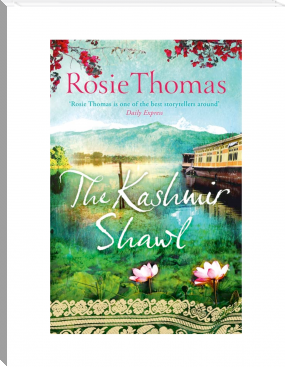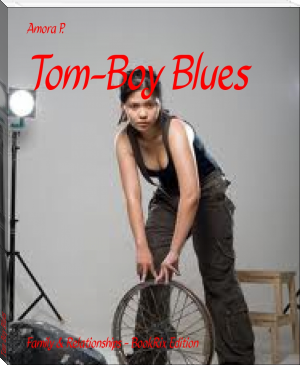Raspberries - Jill Hayes (best fiction novels TXT) 📗

- Author: Jill Hayes
Book online «Raspberries - Jill Hayes (best fiction novels TXT) 📗». Author Jill Hayes
Raspberries
In the box I found brown, frizzy roots, earthy smelling, wrapped in shredded newspaper, damp and moldy smelling, bound together inside a plastic bag. What a contrast to the image I had in my head when I called the company in Maine to order my raspberry plants. I dreamed of cultivating my own little red jewels, going against that little nagging voice inside that chides, “you could never be all that you would have to be to actually create something so special, so rare”. Ignoring the voice, I told myself that I can bring those rubies into existence, maybe enough to wholesomely nourish my children, daring to hope for a bounty that could be shared and admired, my efforts validated.
The voice was right, of course, as the dormant plants were forgotten in the garage, succumbing to both rot and desiccation. Who was I to think for one minute that I could persevere against the days of demands exceeding resources? I can’t get a decent dinner on the table, or keep clean underwear in the dressers. From whom, or where, was I planning to steal the time to cultivate raspberries? How selfish of me to even buy the plants. Whom did I deprive of what with that wasted money? Financial security for my family, wasting not just the price of the plants, but the interest on the credit card, too? Buying those plants brought me guilt, regret, remorse, shame of waste. I don’t even deserve raspberries.
Another year, another box of musty smelling, tangled roots. It wasn’t total denial like last year. I still saw myself as unworthy of the red rewards, but somehow, I had begun to see that if I couldn’t see myself as worthy of the berries, how would my children ever? It had to stop with me. I had to make sure they loved themselves, saw themselves as worthy of love. Can the child of a worthless mother ever love him or herself? If I didn’t stop this, I would teach it to them. They’d believe me, I have never lied to them. They’d come to see that I must be worthless, right? They’d learn that their mother hated herself. They would start to know themselves as the children of a worthless human being, which by default would make them worthless hunan beings, too. They would start to look in the mirror and think, “I’m worthless. I don’t deserve raspberries, either.”
It stops with me. I don’t know how yet, but it must. I have decided that even if these dormant roots never see life again, it is a risk I must take. I must understand what is at risk, and be willing to accept that I might be wasting the money yet again. What exactly is a fair price to pay for the courage to raise children who love themselves?
A patch of dry, forgotten, unloving dirt accepts the frail roots. The plants look silly, like a child has come along and stuck little dead sticks in the ground. This is exactly how I imagine my effort to learn to love myself. Silly, a naive effort to bring life from inanimate objects, like a child’s effort to place a cut flower in the dirt, expecting it to remain alive. The knowledge of those unseen, lacy, unorganized roots under the surface should give me hope, but that old doubt remains, the little nagging voice hisses, “you could never be all that you would have to be to actually create something so special, so rare”. How do I urge life from dormancy, when nobody but me knows there is anything there but sticks in the dirt? I know the answer is inside me, too, but doubt that it can be heard over the voice of that ugly little nag.
I water the plants, knowing that anyone who looked would see me pouring water onto sticks in the dirt. Many days, that’s what I see, too. But I know that nobody but me can bring life here, nobody but me is capable of seeing those roots. Nobody but me so desperately needs to see them.
When the first tiny green leaves appear, I blink in disbelief. Intellectually, I had no reason to think this wouldn’t work; I had followed the instruction sheet to the best of my ability, and the plants were growing. I knew that it works for most of the other people who order raspberry plants from catalogs. But to me, it felt like a tease. See what you could have if you actually had what it takes to persevere? You don’t really think you’ll be able to remember to water, to weed, to step off the treadmill of the demands you allow to steal your minutes, hours, days, and drag yourself out here to this little barren patch of dirt and care for these plants? And you know these plants will die if you don’t.
They did, of course. Die, that is. But something unexpected happened first. I managed to give them just enough attention that three of the eight plants lived long enough to bear fruit. And when my children found them, they were radiant! Their beautiful little eyes, windows-to-their-souls, widened excitedly, their sweet little voices exclaimed, “Mommy, look!!! You grew these!! You grew raspberries!! Want one?” No my loves, you eat them, there are so few. I don’t deserve any of them. It was my fault they weren’t abundant. I had produced this tiny handful of juicy bliss, savored and enjoyed by my children as if they were the only raspberries the world had ever seen. The memory plays in my mind now like a foreign language movie that I am seeing, this time with subtitles. The first time I saw it, I thought it was about my failure to keep the other five plants alive and about how my children must settle for the puny fruits of my inadequate effort to cultivate love. I mean raspberries. I can see now that the film is about finding the courage to try. Even if all the plants don’t grow, don’t bear fruit, you may get a handful of precious vitamins, minerals, goodness and love to give to your children that you wouldn’t have had if you hadn’t tried.
The three living plants died by mid-summer. I couldn’t bear to look at them. My children asked if the plants would get new leaves, grow more berries later, or next year. I told them no, they had died because I didn’t do a good enough job taking care of them. “But that’s what the sticks looked like before you watered them, mommy. Water them again, they’ll grow more berries!” Oh my sweet babies. How little you understand. It doesn’t work that way. I let them die. I failed them. But I love you so much, I’ll consider trying again next year.
Another year, another box of roots, sticks, stink. I told them I’d try again, so here I go. I wonder how much raspberries will cost in the grocery store this year? I will be sure to buy my children some, now that I teased them with a taste. I plant them in the same barren spot, not bothering to put in much effort to prepare the dirt, not even bothering to pull out the dead ones from last year. “Mommy, can I help you? I can water them on the days you can’t”. To myself I think: Oh, my love, you shouldn’t have to. You should have a mommy who is capable of remembering to take care of these stupid plants so you can have the raspberries you deserve.
In this moment, I heard a little voice. But it was not that one inside me, not the ugly one, the one that snarls,“you could never be all that you would have to be to actually create something so special, so rare.” It’s that little voice outside of me, the voice of my baby. Could it be that these children, the ones for whom I so desperately want to learn to love myself, are the ones who can teach me how?? I see for the first time that it is the humility to listen, this is what will save me. These children will help me cultivate the rubies, if I but love them enough, respect them enough, to listen, to learn.
As it turned out, we had plenty of raspberries. Not a ton, not enough to share and reap the admiration (validation) of others. But enough to satisfy and delight my children, because the most amazing thing happened. My children cared for the plants when I didn’t. It was imperfect horticulture, to be sure. We lost two of the new plants. To my surprise, the three plants that had died mid-summer the previous year came back to life when the new plants emerged from their dormancy. The reincarnation of these firmly dead plants mystified me. My children were not surprised in the least. They laughed, asked if I didn’t remember that this is how it happens? Didn’t I remember that all those beautiful berries came from sticks in the dirt? Silly Mommy, why don’t you remember? All you have to do is to love them.
I’m not planning to order any more plants this year. In the fall, I noticed that new stems had come up between the canes we planted and the reanimated ones. I expect that most will reemerge, and some of these descendants of those doubtful early sowings can be gently transplanted, drafted into expanding our little patch of briars and berries. Can I survive until spring? I feel like the real spring this year is also a metaphorical spring for me, a rebirth or reawakening of something that started to grow last year, but has gone dormant. Like the raspberry plants I keep struggling to cultivate, will I make it through this ‘winter’? It’s touch and go, minute to minute, but with the love of my children, I think I can. I have nothing to lose, and everything to gain, by trying. And even though I long for a day when I don’t need external validation, it often seems to have a way of coming when I need it. Sometimes it comes in the form of fruit.
Publication Date: 02-08-2010
All Rights Reserved





Comments (0)